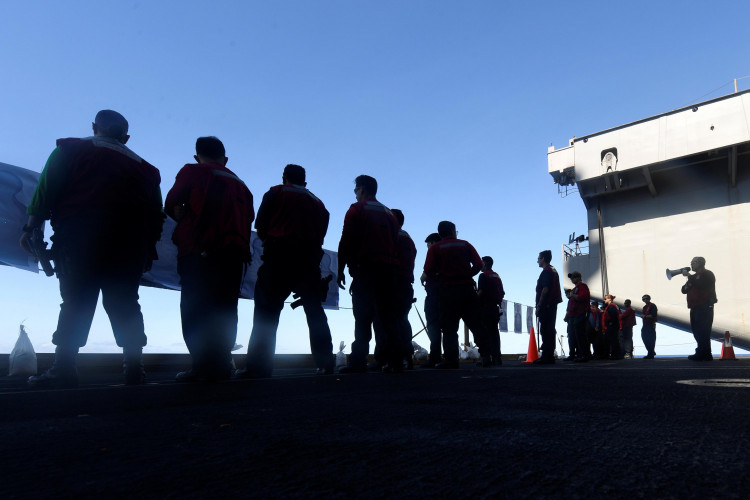The U.S. Navy is forging ahead with plans to arm an Arleigh Burke-class guided missile destroyer and a Littoral Combat Ship with laser cannons capable of destroying aerial drones and small fast attack boats.
The USS Preble (DDG-88), a destroyer of the U.S. Seventh Fleet that transited the Taiwan Strait in March 2019, will be the first Navy destroyer to be armed with the "High Energy Laser with Integrated Optical-dazzler and Surveillance" (HELIOS). Integration of the powerful 60 kW HELIOS laser close in weapons system with the Preble will take place this year.
This historic milestone is the culmination of more than a decade of development work perfecting a ship-borne laser, or directed energy, weapon capable of cheaply and efficiently eliminating threats from small but dangerous weapons such as aerial drones. HELIOS is under contract with Lockheed Martin.
The integration of HELIOS with Preble follows a recent demonstration of full laser power in excess of the 60 kW requirement set by the Navy. HELIOS' scalable laser design architecture combines multiple kilowatt fiber lasers to attain high beam quality at various power levels.
The Navy will also arm the Littoral Combat Ship USS Little Rock (LCS-9) with an even more powerful weapon. Little Rock will be the first warship to deploy a 150kW HELIOS laser weapon system, making this warship the first in its class ready to go to war with this weapon.
The Navy said lasers deployed aboard its LCS fleet contributes to a layered laser defense effort, and boost the LCS's lethality to counter fast-attack craft and aerial drones.
Little Rock will receive HELIOS during its upcoming deployment later this year amid efforts to boost the LCS's lethality, said Vice Adm. Richard Brown, Commander of Naval Surface Forces.
The warship will likely deploy to U.S. Fourth Fleet whose area of responsibility covers the Caribbean Sea, and the Atlantic and Pacific Oceans around Central and South America.
HELIOS will assist LCS warships in its surface warfare mission to counter fast-attack craft and unmanned aerial systems (UAS) and detect incoming targets.
The ongoing effort to bring more lethality to the LCS fleet is meant to dispel rumors LCS aren't survivable or lethal enough in surface combat, said Joe DePietro, Lockheed Martin Vice President and General Manager of Small Combatants and Ship Systems.
Little Rock is a monohull Freedom-class LCS. The LCS fleet comprises two hulls: a monohull version built in Wisconsin by Lockheed Martin and Fincantieri, and a trimaran version built by Austal USA in Alabama.






